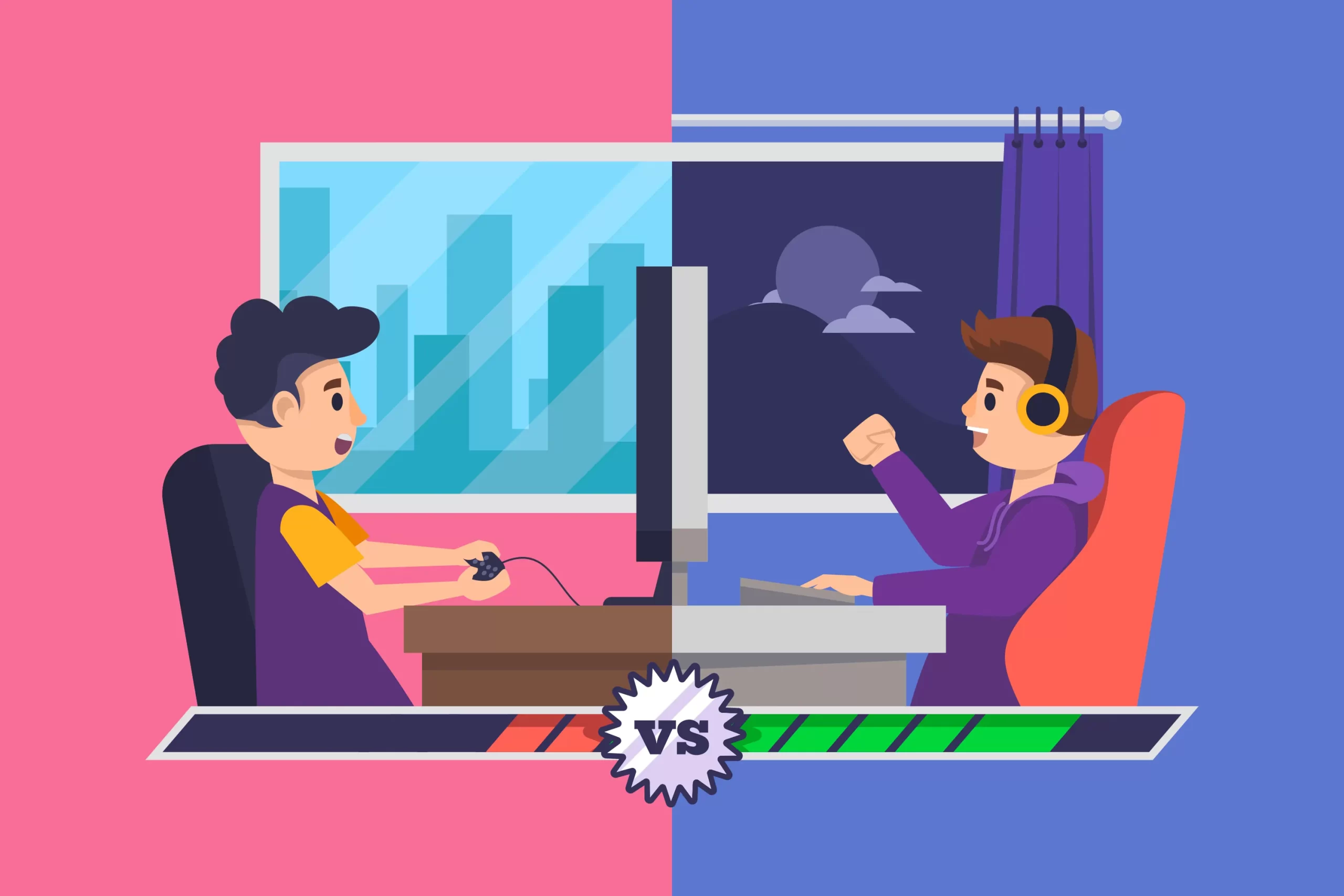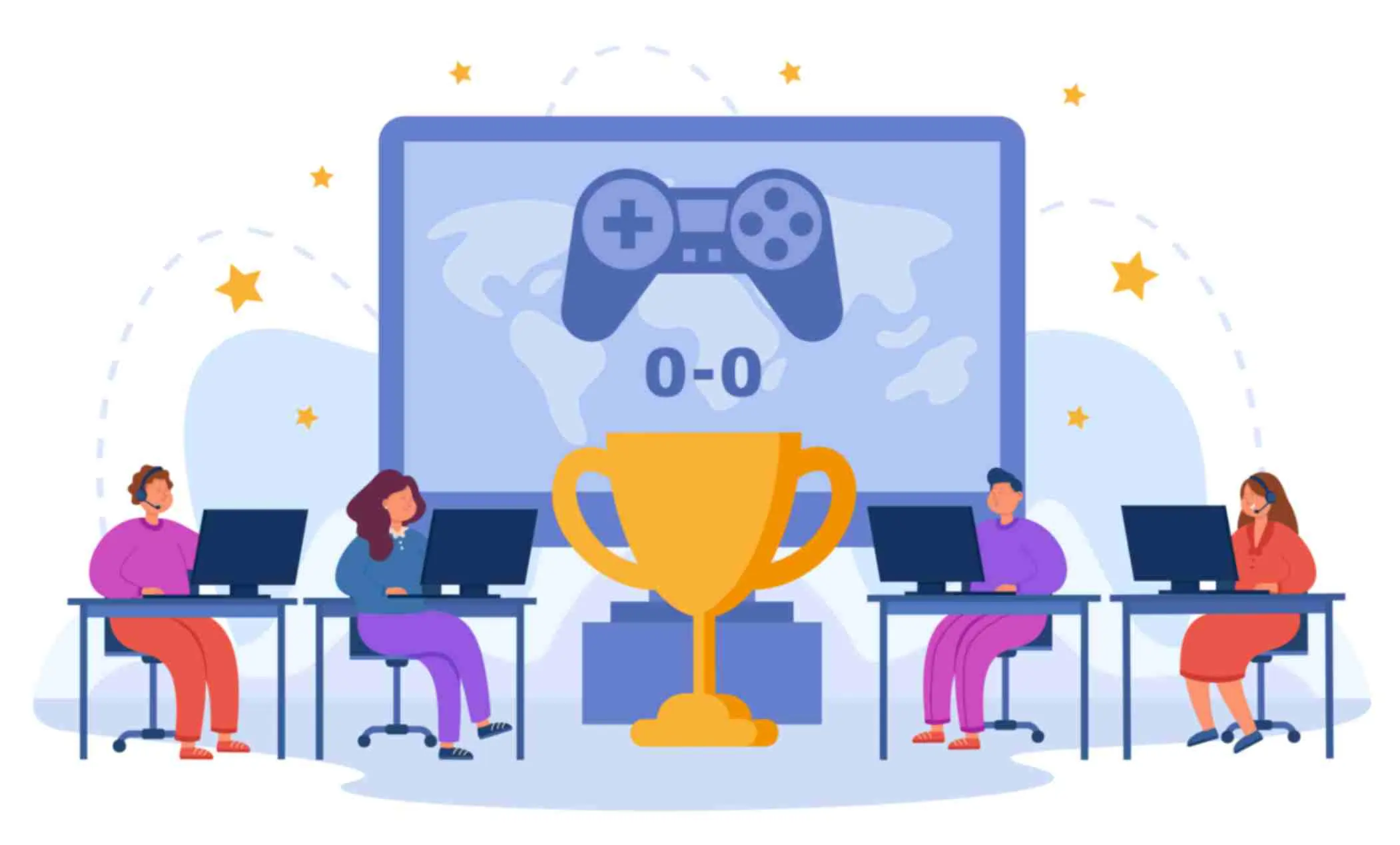In the rapidly advancing world of gaming, game testing services are essential for ensuring that players receive a seamless and enjoyable experience. As we move into 2024, several significant trends are set to reshape the landscape of game testing, influenced by cutting-edge technologies, evolving player expectations, and the increasing prevalence of remote testing. This blog will explore these emerging trends, highlighting how they enhance game quality and strengthen the relationship between developers and gamers. By staying attuned to these developments, game developers can refine their strategies and deliver compelling experiences that meet the demands of today’s players. This article delves into these critical trends and their potential impact on game testing companies and professionals in the field.
Why Game Testing Services Matter
Game Testing Companies with Certified QA Professionals:
Hiring certified QA professionals ensures that game testing teams have the required knowledge and expertise to efficiently detect bugs and quality issues. These professionals are dedicated to maintaining high industry standards and best practices, ensuring a dependable process for game quality assurance.
Game Tester Companies Offering In-Depth Bug Reporting:
Companies that specialize in detailed bug reporting provide thorough documentation of any issues found during testing, outlining the severity, reproduction steps, and the overall impact on gameplay. This comprehensive information helps developers address critical issues more effectively, enhancing the game’s quality before it goes live.
Game Tester Companies for Console Game Testing Services:
Companies that focus on console game testing ensure that games perform seamlessly on various hardware configurations. They evaluate compatibility, measure performance, and ensure the game meets platform-specific guidelines to deliver a smooth and reliable experience for console gamers.
Game Testing Services for Mobile and Tablet Applications:
As the demand for mobile gaming rises, game testing services tailored for mobile and tablet applications focus on performance, usability, and compatibility across different devices and operating systems. These services often include testing for touch responsiveness, screen resolutions, and battery consumption to optimize the user experience.
Game Tester: Game Testing Services for Both Functional and Non-Functional Testing:
A game tester specializing in both functional and non-functional testing ensures that games are not only free from bugs but also meet performance standards, user experience expectations, and security requirements. Functional testing verifies game mechanics and features, while non-functional testing assesses aspects like load capacity, scalability, and responsiveness.
Outsourced Game Testing Services for Independent Developers:
Outsourced game testing services provide independent developers with access to professional testing resources without the need for in-house teams. This model allows smaller studios to leverage expertise and save costs, enabling them to focus on game development while ensuring quality through external testing support.
Game Testing Trends for 2024: Adapting to Player Expectations
1. Advancements in Game Testing Technologies
The realm of game testing is undergoing significant changes thanks to the integration of advanced technologies.
Artificial Intelligence and Machine Learning Applications
The incorporation of artificial intelligence and machine learning is becoming increasingly vital in automating various game testing functions. These technologies have the ability to observe player behavior, detect bugs, and anticipate possible issues before they manifest. For instance, AI-powered testing solutions can mimic player actions to ensure that games maintain high performance under different conditions.
Benefits of Cloud Computing in Testing
Cloud technology is transforming how game testing is conducted by providing the ability to create remote testing environments. Testers can now perform assessments across various devices and platforms without relying on substantial physical hardware setups. This shift not only minimizes costs but also fosters better collaboration among teams, regardless of their geographical locations.
Virtual Reality (VR) and Augmented Reality (AR)
As VR and AR technologies gain traction, testing these immersive experiences becomes essential. Specialized testing methods are required to assess the user experience in VR and AR games, focusing on factors such as comfort, motion sickness, and overall engagement.
Blockchain Technology
Blockchain technology is starting to impact game testing, particularly in ensuring secure transactions and protecting in-game assets. Testing companies will need to develop expertise in blockchain integration to safeguard against vulnerabilities associated with virtual currencies and NFTs.
Automation Tools
Automation tools continue to evolve, allowing game testers to automate repetitive tasks more effectively. This not only accelerates the testing process but also improves accuracy by minimizing human error. As these tools become more sophisticated, the efficiency of game testing services will increase dramatically.
2. Shifts in Player Expectations
As gaming continues to gain popularity, the expectations of players are also changing. The gamer demographic is diversifying, leading to new requirements:
High Demand for Quality
Today’s players seek exceptional gaming experiences with minimal bugs and glitches. This rising expectation compels game testing firms to refine their testing methodologies, emphasizing thoroughness and dependability. The significance of quality assurance in game testing has never been more pronounced, as gamers are increasingly intolerant of technical difficulties.
Growing Need for Personalization
Players are increasingly interested in tailored gaming experiences that reflect their individual preferences. To meet this demand, testing services must shift their focus toward user-centered testing. This approach involves gathering and incorporating feedback on game mechanics, narratives, and customization features. By embracing player preferences during the testing phase, developers can design more captivating and immersive gaming experiences.
Importance of Social and Community Engagement
Modern gamers place a high value on social elements, including multiplayer modes and community interactions. Therefore, testing services need to meticulously assess these features to guarantee smooth connectivity and a seamless experience for players engaging with one another.
3. The Rise of Remote Testing
The trend toward remote work has gained momentum due to the COVID-19 pandemic, and game testing is one of the sectors embracing this change. Remote testing teams present several key advantages:
Greater Flexibility and Access to Talent
Remote testing enables organizations to access a worldwide talent pool. Game testers can work from any location, simplifying the recruitment of skilled specialists. This capability allows for the formation of diverse testing teams, which can enhance the quality of insights and feedback during the testing process.
Cost Reduction
Implementing remote testing practices can help companies cut down on the expenses associated with operating physical testing environments. By lowering these costs, game testing services can better allocate their resources, leading to improved efficiency in the overall testing process.
Enhanced Team Collaboration
Remote collaboration tools have significantly strengthened communication and workflow among testing teams. By utilizing platforms like Slack, Zoom, and various project management applications, organizations can ensure that all team members remain coordinated and informed throughout the testing lifecycle.
4. Emphasis on Diversity and Inclusion in Game Testing
As the gaming sector continues to grow, the significance of diversity and inclusion in game testing is becoming more apparent. Diverse teams can bring fresh insights that elevate the quality of games and ensure they appeal to a wider audience:
Broadening Player Representation
With an expanding demographic of gamers from various backgrounds, it’s vital for game testing firms to mirror this diversity within their teams. A varied team can identify cultural nuances and help ensure that games are both inclusive and reflective of different experiences.
Encouraging Creative Solutions
Diverse perspectives foster innovation and unique solutions. By engaging testers from various backgrounds, organizations can nurture an atmosphere that promotes creativity, ultimately leading to richer gaming experiences.
Adopting Inclusive Testing Methodologies
Game testing services need to incorporate inclusive methodologies that account for different gameplay styles and accessibility requirements. This includes testing games for considerations like color blindness, mobility challenges, and other elements that can impact the gaming experience.
5. Integration of Player Feedback
Integrating player feedback into the testing process is becoming increasingly vital. Game testing companies are adopting more interactive approaches to gather insights from players:
Beta Testing Programs
Many game developers are launching beta testing programs to involve players early in the development process. This feedback can significantly influence game design, mechanics, and overall experience. Companies can use platforms like Discord or dedicated forums to collect player insights.
User Experience (UX) Testing
Testing services are emphasizing UX testing to evaluate how players interact with games. This involves analyzing user interfaces, controls, and overall engagement. By understanding player behavior, game developers can make informed decisions to improve gameplay.
Continuous Feedback Loops
Implementing continuous feedback loops allows game testers to gather ongoing player insights throughout the development cycle. This iterative approach helps teams respond quickly to player needs and adapt the game accordingly.
6. Sustainability in Game Testing
As the global conversation around sustainability intensifies, the gaming industry is also feeling the pressure to adopt sustainable practices:
Environmentally Friendly Testing
Game testing companies are exploring ways to reduce their environmental footprint. This includes minimizing paper usage, adopting digital workflows, and implementing energy-efficient practices in their testing facilities.
Social Responsibility
Many game developers are prioritizing social responsibility in their games, and this extends to the testing phase. Testing companies must ensure that games promote positive social messages and reflect responsible gaming practices.
Sustainable Supply Chains
Incorporating sustainability into supply chains is becoming increasingly important for game testing services. Companies are looking to partner with eco-friendly vendors and adopt practices that align with their sustainability goals.
7.Implementation of Agile Testing Methodologies
Agile methodologies have increasingly influenced software development, and game testing has also embraced this trend. Adopting agile testing practices offers numerous benefits:
Adaptability and Responsiveness
Agile testing fosters a dynamic approach to game development. Testing teams can quickly respond to changes in design, ensuring that their efforts remain aligned with the most current features and updates.
Enhanced Team Collaboration
Agile emphasizes the importance of collaboration between development and testing teams. By working closely together, they can uncover issues early in the development process, resulting in more effective testing and improved game quality.
Focus on Continuous Improvement
Agile methodologies promote an ongoing commitment to refining processes. This encourages game testing services to continuously enhance their workflows, ensuring they consistently deliver value throughout the development cycle.
8. Utilizing Cloud Technology
Cloud technology is transforming the game testing landscape in numerous ways:
Scalable Testing Environments
Cloud-based testing environments allow game testers to scale their operations quickly. This flexibility enables teams to conduct tests across multiple platforms and devices without the need for extensive hardware setups.
Real-Time Collaboration
Cloud technology facilitates real-time collaboration among testing teams, regardless of their physical location. This enables teams to share results, insights, and updates instantly, enhancing communication and efficiency.
Cost-Effective Solutions
By utilizing cloud services, game testing companies can reduce costs associated with maintaining physical infrastructure. This cost-effectiveness can lead to improved budgets for game development and testing.
9. Partnership with Players
The growing trend of collaboration between game developers and players is transforming the landscape of game testing. This partnership cultivates a vibrant community and enhances player engagement:
Opportunities for Co-Creation
Game developers are increasingly inviting players to take part in the co-creation process. This can include gathering feedback on gameplay mechanics, storylines, and character designs, enabling players to feel a deeper connection and ownership of the final game.
Testing Driven by the Community
Community-driven testing leverages the insights and feedback of player communities. By actively involving players in the testing phase, companies can uncover valuable perspectives that may not surface through conventional testing approaches.
Strengthening Developer-Player Bonds
Collaborating with players helps build stronger relationships between developers and their audience. This interaction fosters a sense of loyalty among players, who feel appreciated and invested in the game’s success.
Conclusion
The field of game testing services is undergoing a significant transformation, propelled by new technologies, changing player expectations, and the adoption of innovative methodologies. As companies in this sector adapt to these evolving trends, they need to remain flexible and attentive to the demands of both developers and players. By promoting diversity, integrating player insights, and prioritizing sustainable practices, the gaming industry can enhance the quality of the experiences it offers.
One company making strides in these areas is Testers HUB. Committed to delivering top-tier game testing services, Testers HUB utilizes cutting-edge technologies and fosters collaboration between developers and players. This strategy ensures that games align with the dynamic expectations of the gaming community. As we approach 2024, firms like Testers HUB are positioned to influence the future of game testing, guaranteeing that players enjoy the exceptional experiences they seek.
FAQ
- What are the prevailing trends in game testing for 2024?
Significant trends this year include the integration of artificial intelligence and cloud technologies, changing player expectations, the growth of remote testing, a stronger focus on diversity and inclusion, and the implementation of agile testing methodologies. - How do emerging technologies affect game testing?
Emerging technologies facilitate automation of testing procedures, enhance team collaboration, and boost overall testing efficiency, which leads to quicker bug detection and a more satisfying experience for players. - Why is gathering player feedback crucial in game testing?
Collecting player feedback is essential because it provides developers with valuable insights regarding user experience and preferences, enabling them to develop more engaging and high-quality games. - In what ways does Testers HUB incorporate player feedback into its testing procedures?
Testers HUB actively seeks player input through beta testing and community engagement, utilizing this feedback to improve game design and mechanics. - What types of technologies does Testers HUB utilize for game testing?
Testers HUB leverages a range of tools, including AI-based applications, cloud-hosted environments, and automation software, to increase the efficiency and accuracy of their testing efforts. - How can I benefit from Testers HUB’s game testing services?
Partnering with Testers HUB provides access to skilled testers who prioritize quality, using diverse and agile approaches for thorough evaluations. - What types of games does Testers HUB specialize in testing?
Testers HUB specializes in mobile, PC, console, and VR/AR games, offering tailored testing services for various gaming genres.











